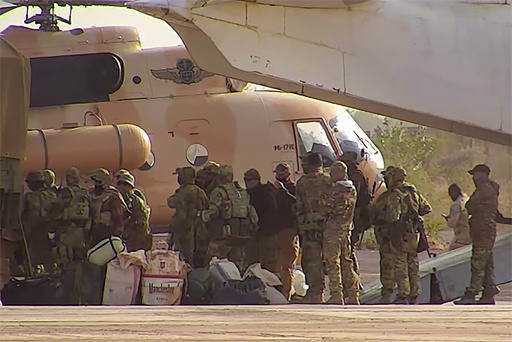DAKAR, Senegal — According to a report released on Thursday by Human Rights Watch, the Malian armed forces, with backing from Russian mercenaries, have been implicated in serious violations against civilians following the departure of a United Nations peacekeeping mission late last year.
As detailed in the report, the Malian military and the Wagner Group, a Russian paramilitary organization, have deliberately killed a minimum of 32 civilians—seven of whom died in a drone strike—abducted four individuals, and incinerated over 100 homes across various towns and villages in central and northern Mali since May.
The rights organization further pointed out that local jihadi factions have executed at least 47 civilians without trial and have caused significant displacement among the population since June. These groups have not only burned thousands of homes but have also looted livestock, a crucial resource for the nomadic communities residing in the area.
According to Ilaria Allegrozzi, a senior researcher focused on the Sahel region at Human Rights Watch, “The Malian army, along with the Wagner Group and Islamist armed factions, have been intentionally targeting civilians and their properties, in blatant violation of international humanitarian law.”
The ongoing conflict in Mali, as well as in its neighboring countries of Burkina Faso and Niger, has persisted for over ten years, primarily led by jihadist groups linked to al-Qaida and the Islamic State. In recent years, military coups in all three nations have resulted in the expulsion of French military forces, causing the ruling juntas to seek assistance from Russian mercenaries for security purposes.
Wagner has been active in Mali since late 2021, stepping in after a military coup interrupted the presence of French troops and international peacekeeping forces. However, the mercenary group has been accused of conducting military operations, including drone strikes, that have resulted in civilian casualties.
In December of the previous year, the United Nations concluded its long-standing peacekeeping mission in Mali, known as MINUSMA, following the government’s assertion that the mission was insufficient to address the ongoing insurgency.
Allegrozzi expressed concern over the severe difficulties in obtaining consistent reports on abuses since the departure of MINUSMA, stating, “We are increasingly worried that the situation may be even worse than what we’ve been able to document.”



